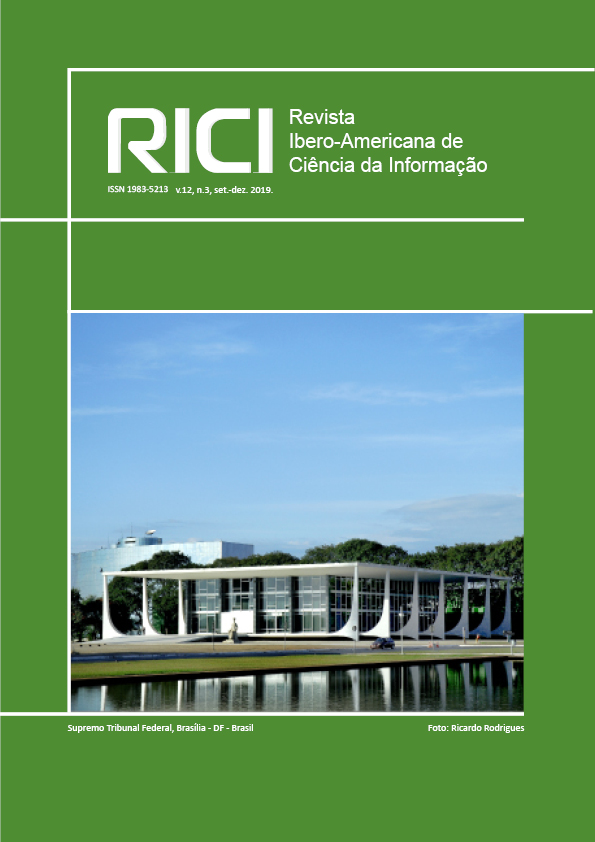Information practices of adolescents on the internet
DOI:
https://doi.org/10.26512/rici.v12.n3.2019.20761Keywords:
Adolescent. User studies. Internet. interaction with the information.Abstract
The internet has changed the way individuals deal with information. Numerous data show that adolescents use the network intensively. The article presents a study that aimed to investigate the information practices of adolescents on the Internet. Developed in the Capurro's social paradigm view and from the perspective of information practices, we investigated how adolescents seek, use and share information on the Internet; what external factors impact their choices; as well as society's perception regarding adolescence. The study starts from a pragmatic conception, has a descriptive purpose, basic nature and transversal temporal horizon. The strategy chosen involved mixed methods. To reach the proposed goals, adolescents and adults were interviewed. The methodological procedures were based on the survey, on the Discourse of the Collective Subject and on comparative study. It has been found that young people spend considerable time on the internet and are greatly influenced by the environment in which they live, especially by their friends. Adults presented a predominantly negative perception regarding some adolescents’ behaviors, an understanding not confirmed in the comparison with the youth practices. It is concluded that the web offers young people numerous possibilities of interaction and access to information, while exposing them to various risks.
Downloads
Downloads
Published
How to Cite
Issue
Section
License
Copyright Notice
Authors who publish in this journal agree to the following terms:
- Authors retain copyright and grant the journal right of first publication with the work simultaneously licensed under the Creative Commons Attribution License 4.0, allowing the sharing of work and recognition of the work of authorship and initial publication in this journal.
- Authors are able to take on additional contracts separately, non-exclusive distribution of the version of the paper published in this journal (ex.: distribute to an institutional repository or publish as a book), with an acknowledgment of its initial publication in this journal.
- Authors are permitted and encouraged to distribute their work online (eg.: in institutional repositories or on their website) at any point before or during the editorial process, as it can lead to productive exchanges, as well as increase the impact and citation the published work.
















